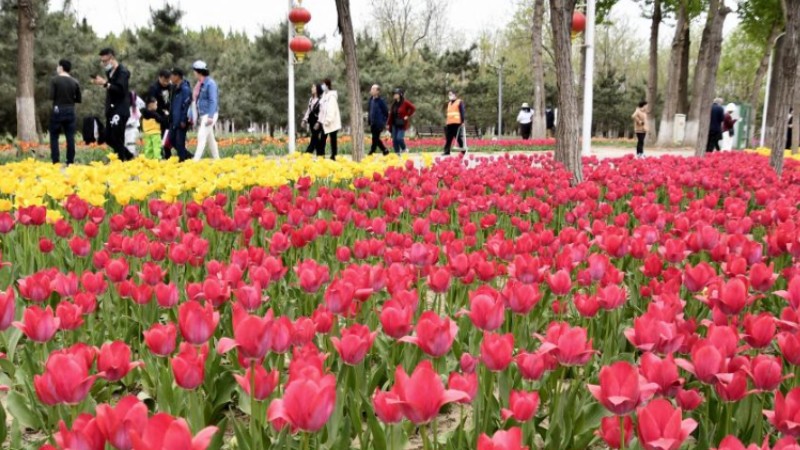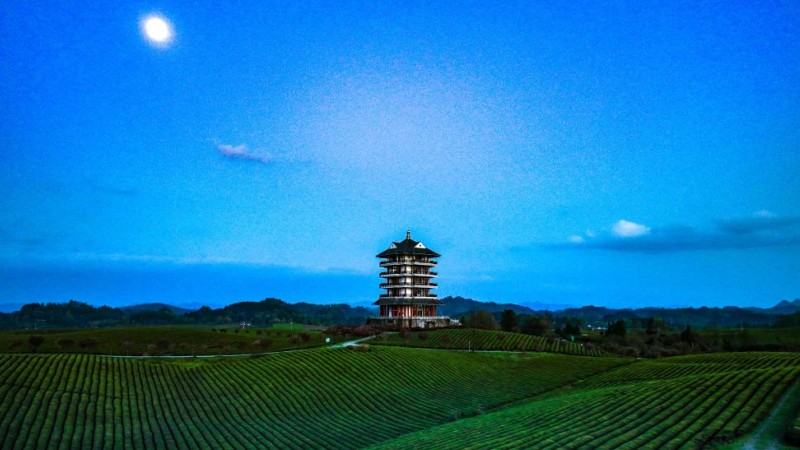The rapid rise of black fungi
HARBIN, April 17 (Xinhua) -- After bending over the whole morning amid a jungle of fungus-growing bags, Ding Chengliang stepped out of the greenhouse, stretched and took a breath of spring air.
Ding is the technical director of a fungus farm in the city of Dongning, northeast China's Heilongjiang Province. His job is monitoring the growth of black fungi on the surfaces of fungus-growing bags in the farm's 76 greenhouses.
The greenhouses produce 15 million fungus-growing bags every year. Three-quarters of the bags are sold to local farmers, generating some 15 million yuan (about 2.2 million U.S. dollars) of annual output. The farm uses the rest of the bags to grow fungi for sale, reaping another 15 million yuan of output, according to Ding.
Growing like mushrooms in the forest, the black fungus has been a famous Chinese delicacy for many centuries. The history of fungus collecting in China can be traced back over 1,400 years ago, documents show.
Wang Qiang, deputy Party chief of Suiyang Town in Dongning, said farmers in the town began growing fungi manually in the 1990s, first using chunks of wood and then sawdust.
In 2001, the government started attracting investment and established a wholesale market for black fungi and wild vegetables. The number of businesses in the market has skyrocketed from 40 to 643, with June being the peak season.
The annual trade volume of the black fungus in the market has reached 100,000 tonnes, bringing 6 billion yuan of trade value, said Wang.
Qin Haifeng, a Party official of Dongning, said that over 28 percent of the city's farmers are black fungus growers and they produced 43,000 tonnes of dried black fungi last year. The annual output in the black fungus industry reached 3.4 billion yuan.
"Growing black fungus is becoming a pillar industry here in Dongning," he said.
On a local marketing square, Jiao Yufeng, a black fungus wholesaler, is shoveling her products into the bags on the ground.
Jiao, from the distant city of Heihe, is among the many merchants coming to Dongning for the fungus trade business.
"I moved here in 2020 and decided to stay for my business, as I can find buyers for my fungi of different grades," said Jiao, adding that she sold over 150,000 kg of black fungi last year.
In recent years, China has worked hard to increase the income of farmers by promoting rural specialty industries, which was also emphasized in its government work report this year.
According to the Ministry of Agriculture and Rural Affairs, 199 towns in China have developed a specialty industry worth more than a billion yuan, injecting vitality into the economy in the nation's vast rural area.
Photos
Related Stories
- Digital commerce brings new opportunities to China’s rural revitalization
- China revises down sugar output forecast for 2022-2023
- View of farmland in Fuzhou, SE China
- Eco-friendly farm in central China's Hubei becomes paradise for wild swans
- Tractors sow cotton seeds in farm near village of Plagiari in Greece
- In pics: "unmanned farm" in China's Anhui
- Children get hands-on experience using traditional farm tools in Tianjin, N China
- Which farm products get Xi's thumbs-up?
- Farming activities in full swing across China
- Chinese citizens see larger income growth
- Xi encourages development of farmers' cooperatives suited to local conditions
Copyright © 2023 People's Daily Online. All Rights Reserved.









